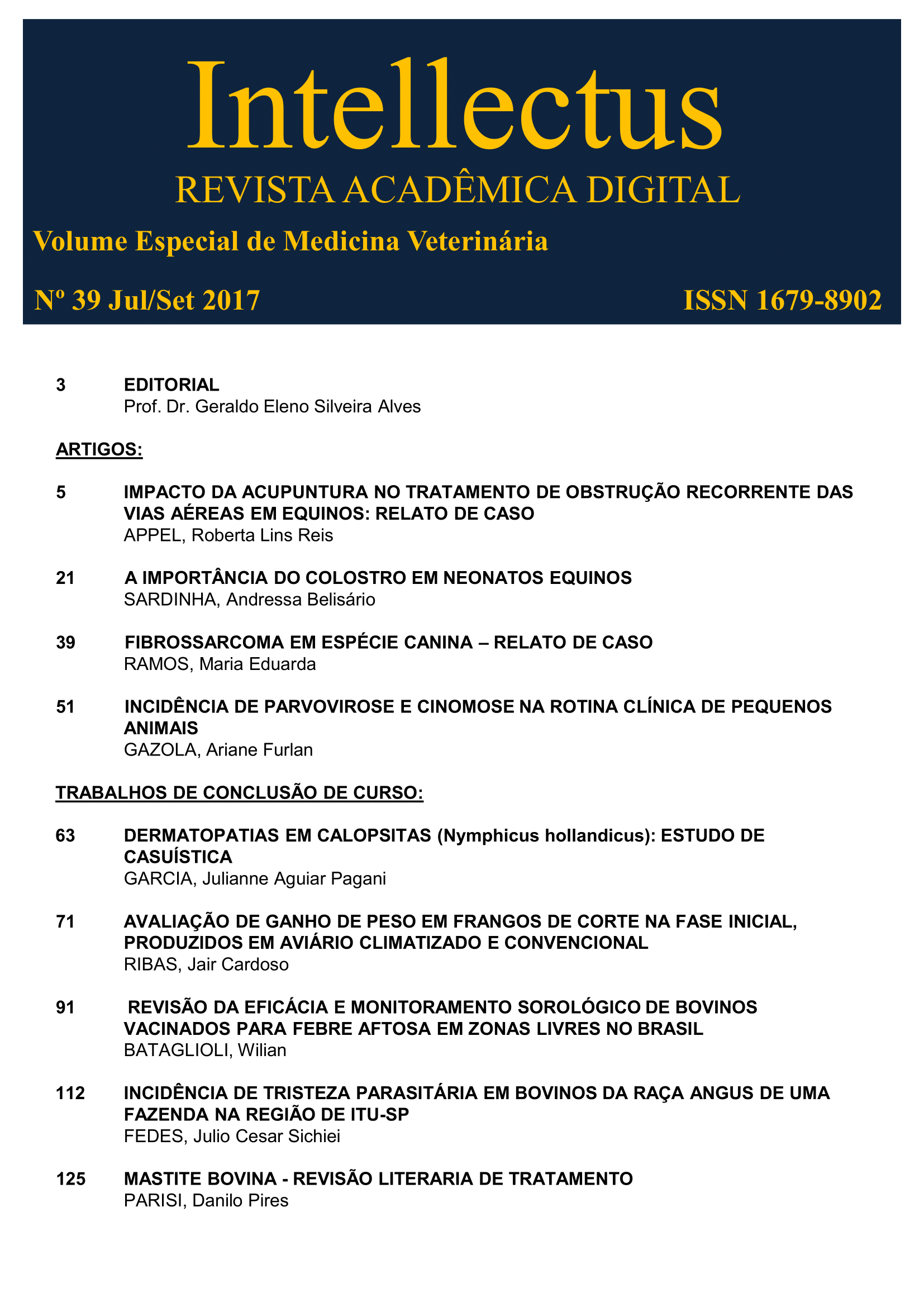Pleuropneumonia in horses
Case study
Keywords:
Pleuropneumonia, thoracocentesis, ultrasonographyAbstract
The pleuropneumonia is known as pleuritis or infectious pleural effusion, popularly referred to as a travel fever, usually associated with stress due to prolonged transport and confinement. What results in a pneumonia, it´s development is by the contamination of the lower airways by the oropharyngeal microflora, characterized by inflammation of the parenchyma and associated with inflammation of the pleura. In the present report, the animal showed t following clinical signs: dyspnea, cyanotic mucosa, elevated rectal temperature and intense sweating. The diagnosis is based on clinical signs and exams such as auscultation, percussion, radiography and thoracic ultrasonography. The thoracentesis procedure is fundamental, as it promotes comfort and stabilization of the animal's respiration when large volumes of fluid are withdrawn from the pleural cavity. Treatment consists of systemic antibiotic therapy, anti-inflammatories, analgesics, inhalation with bronchodilators, fluid therapy and pleural fluid drainage.



